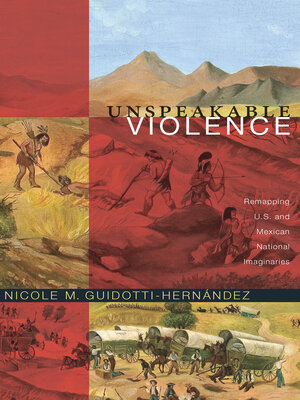Unspeakable Violence
ebook ∣ Remapping U.S. and Mexican National Imaginaries · Latin America otherwise : languages, empires, nations
By Nicole M. Guidotti-Hernández

Sign up to save your library
With an OverDrive account, you can save your favorite libraries for at-a-glance information about availability. Find out more about OverDrive accounts.
Find this title in Libby, the library reading app by OverDrive.



Search for a digital library with this title
Title found at these libraries:
| Loading... |
Unspeakable Violence addresses the epistemic and physical violence inflicted on racialized and gendered subjects in the U.S.–Mexico borderlands from the mid-nineteenth century through the early twentieth. Arguing that this violence was fundamental to U.S., Mexican, and Chicana/o nationalisms, Nicole M. Guidotti-Hernández examines the lynching of a Mexican woman in California in 1851, the Camp Grant Indian Massacre of 1871, the racism evident in the work of the anthropologist Jovita González, and the attempted genocide, between 1876 and 1907, of the Yaqui Indians in the Arizona–Sonora borderlands. Guidotti-Hernández shows that these events have been told and retold in ways that have produced particular versions of nationhood and effaced other issues. Scrutinizing stories of victimization and resistance, and celebratory narratives of mestizaje and hybridity in Chicana/o, Latina/o, and borderlands studies, she contends that by not acknowledging the racialized violence perpetrated by Mexicans, Chicanas/os, and indigenous peoples, as well as Anglos, narratives of mestizaje and resistance inadvertently privilege certain brown bodies over others. Unspeakable Violence calls for a new, transnational feminist approach to violence, gender, sexuality, race, and citizenship in the borderlands.






